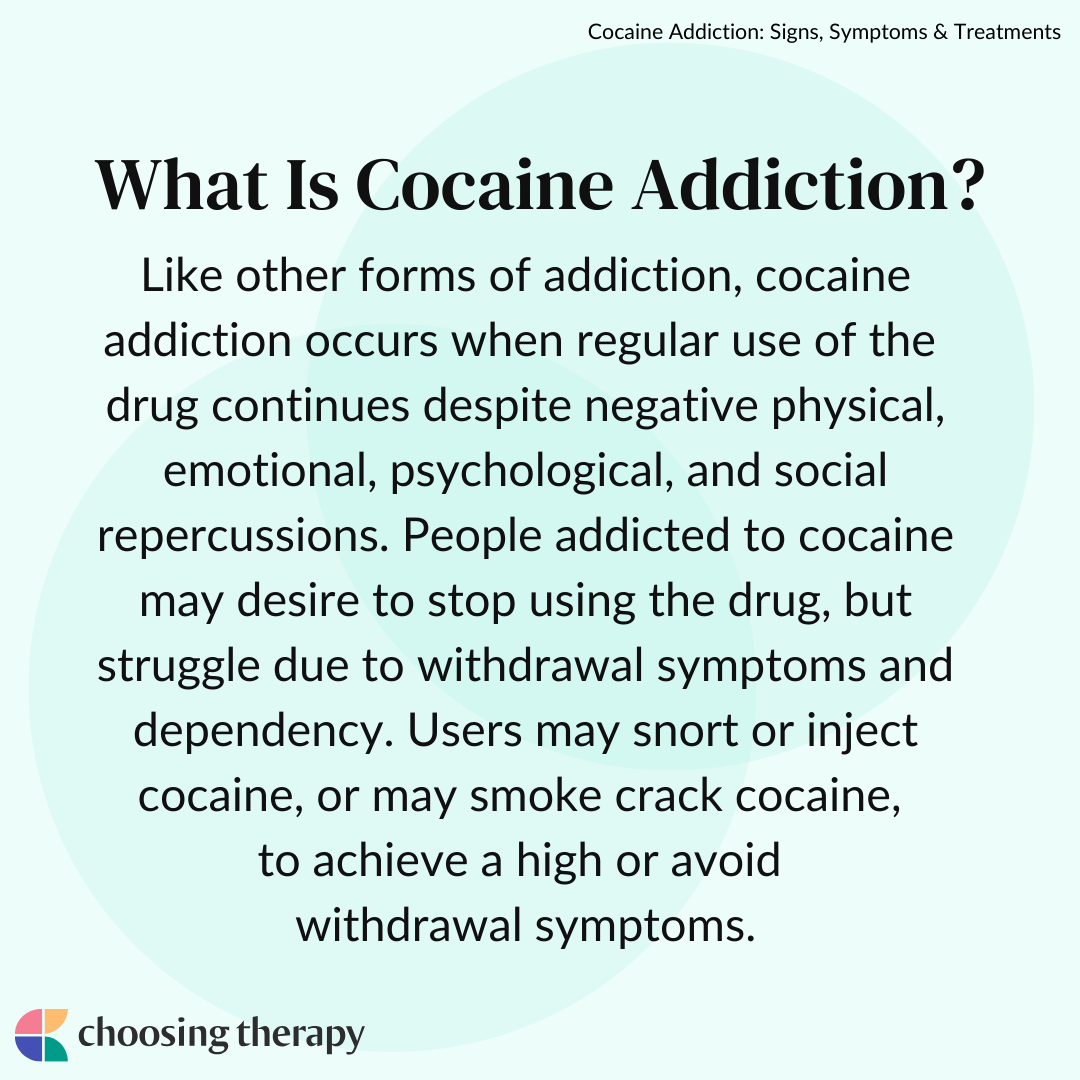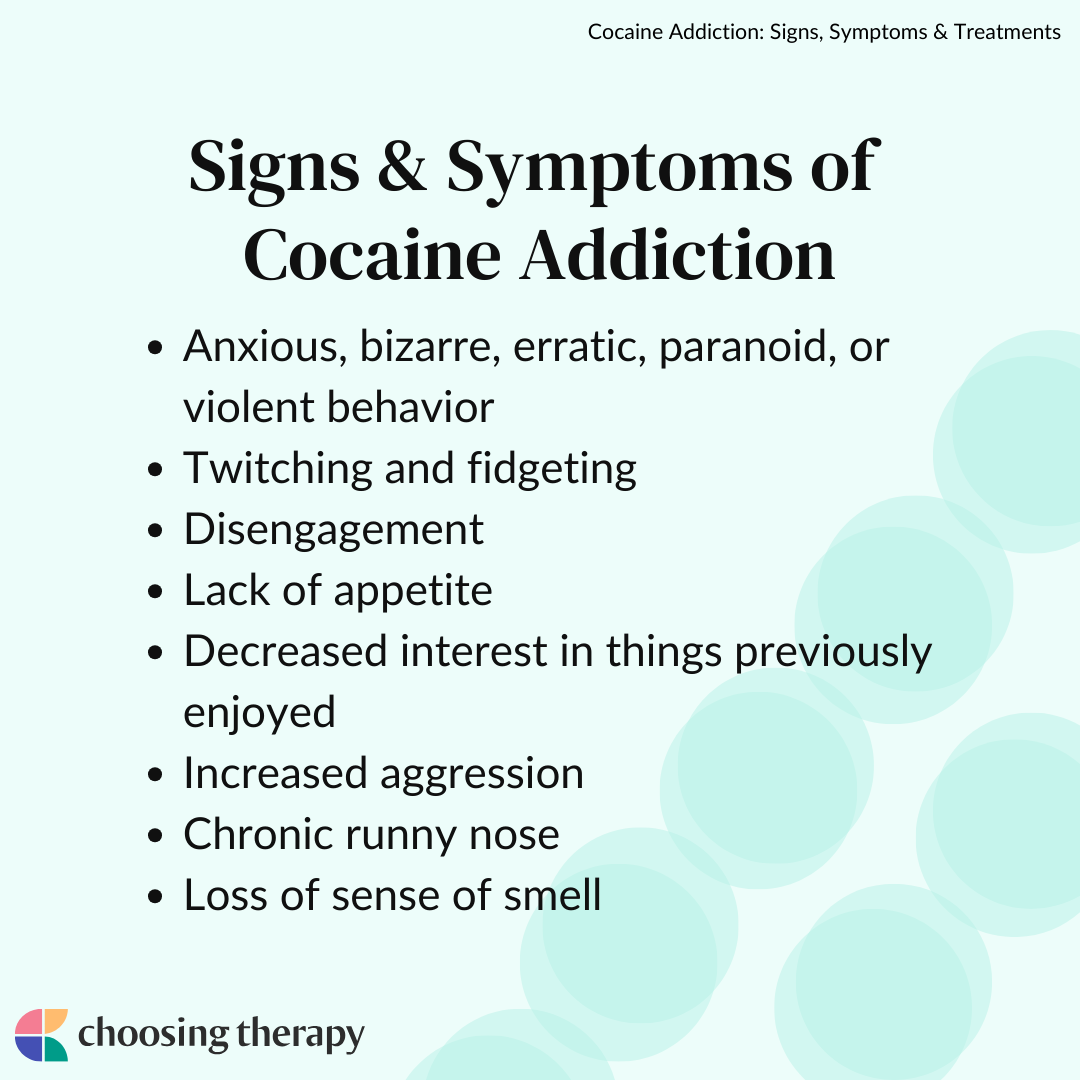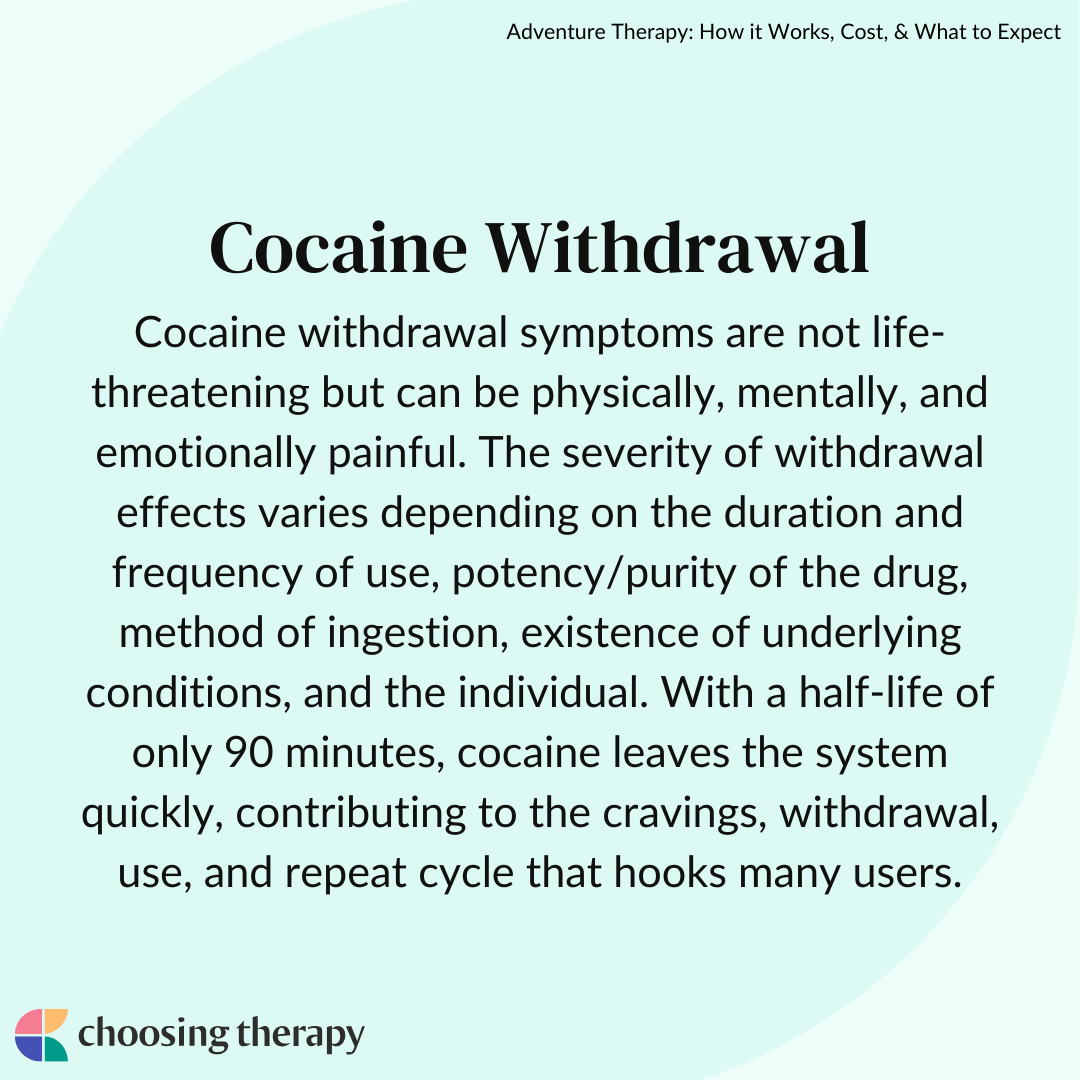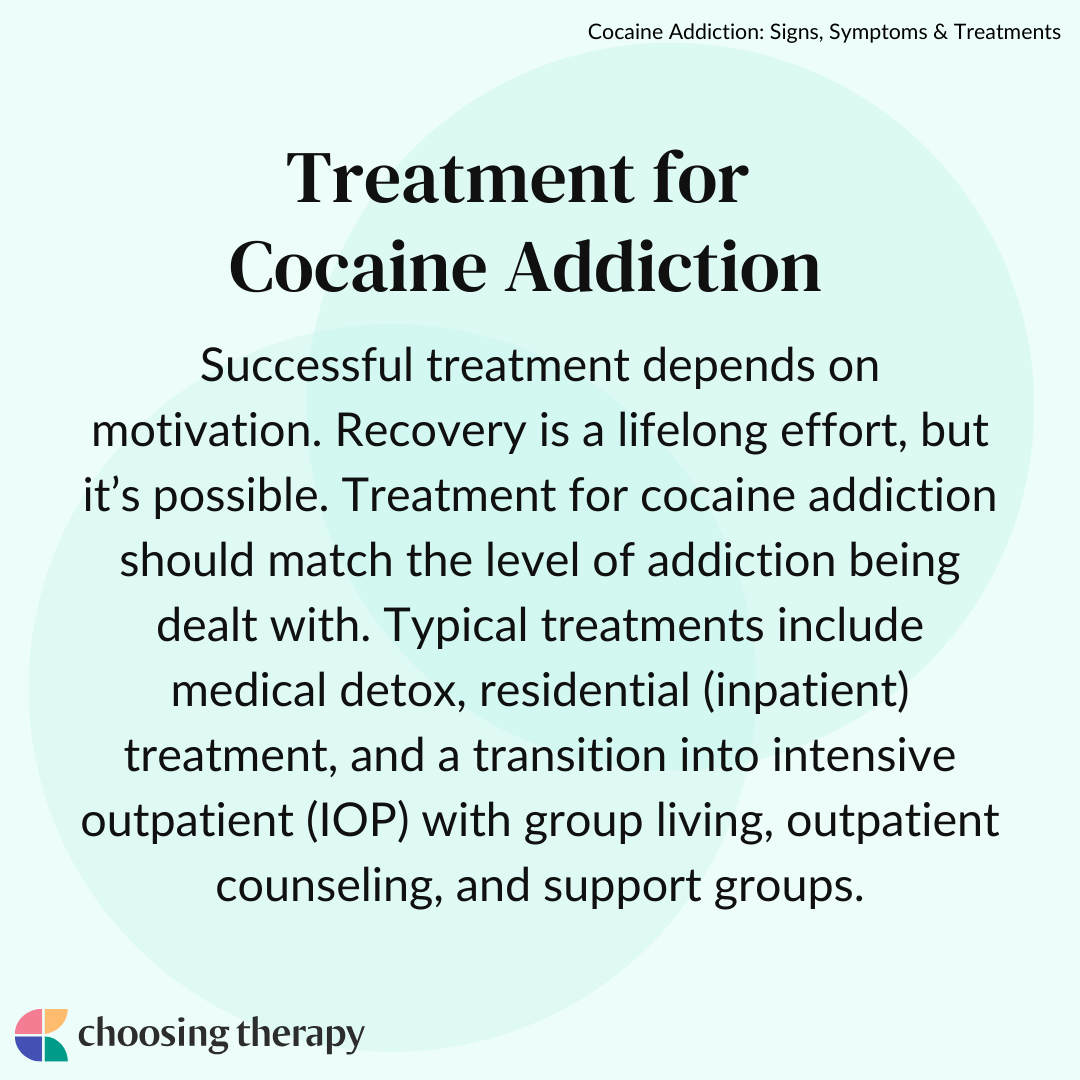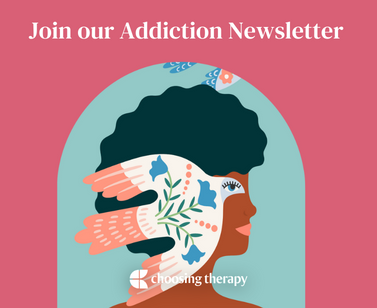Cocaine addiction is a stimulant use disorder characterized by continued cocaine consumption despite a desire to stop or associated consequences. People struggling with addiction may become physically, mentally, emotionally, or socially reliant on cocaine. Cocaine addiction is treatable, often requiring professional care through rehab, intensive outpatient treatment, and ongoing support.
Bicycle Health: Telehealth Treatment For Opioid Use Disorder “Best For Online MAT Program For Opioid Use Disorder” (Choosing Therapy)* Bicycle Health offers therapy, support, and medication for addiction treatment (MAT). MAT offers the lowest relapse rates for opioid use disorder, helping people to stop using opioids with minimal physical discomfort. Covered by most major insurance. Visit Bicycle Health.
What Is Cocaine Addiction?
Like other forms of addiction, cocaine addiction occurs when regular use of the drug continues despite negative physical, emotional, psychological, and social repercussions. People addicted to cocaine may desire to stop using the drug, but struggle due to withdrawal symptoms and dependency. Users may snort or inject cocaine, or may smoke crack cocaine, to achieve a high or avoid withdrawal symptoms.
Cocaine Vs. Crack
Cocaine is a powerful stimulant derived from the leaves of the South American coca plant. When sold on the street, it appears as a very fine, white, crystallized powder. Users may either snort or inject cocaine intravenously to achieve a high or avoid withdrawal.1 Crack cocaine is produced by mixing cocaine with baking soda and water to produce a rock crystal. Users then light the rock crystal and inhale the fumes from heating the substance, which produces an immediate and intense euphoric effect.1
How Addictive Is Cocaine?
Cocaine is addictive because of its instantaneous effects on the available dopamine in the brain, producing euphoric effects for the user. Regular cocaine use prevents dopamine from being recycled in the brain and stops typical communication between cells.1 As tolerance develops, users must take larger amounts or increase frequency of use to achieve similar effects, or at least to avoid withdrawal.2
Smoking crack cocaine is associated with higher risk of developing dependency than snorting cocaine.3 Crack cocaine is a much more concentrated form of the substance and produces more intense and immediate effects than intranasal use.3
Help For Addiction Ria Health: Effective, Evidence-Based Alcohol Treatment 100% Online Quickly change your relationship to alcohol with our at-home program. On average, Ria Health members reduce their BAC levels by 50% in 3 months in the program. Services are covered by many major health plans. Visit Ria Health Workit Health – Online Treatment for Opioids or Alcohol, Including Medication. Modern, personalized recovery that combines medication, a supportive community, and helpful content. Covered by many insurance plans. Currently available in FL, TX, OH, MI, and NJ. Visit Workit Health Best Drug Addiction Rehab Centers – Find the best local detox or drug rehab center covered by your health insurance. Search by location, condition, insurance, and more. Read reviews. Start Your Search
Signs & Symptoms of Cocaine Addiction
Someone with a cocaine addiction will often show certain signs of their continued use. As use continues over time, signs and symptoms may increase in frequency and intensity. Some clearly visible symptoms, such as dilated pupils or increased aggression, may be more obvious than more internal symptoms like a chronic runny nose or loss of sense of smell.4
Signs and symptoms of cocaine addiction may include:4,5
- Anxious, bizarre, erratic, paranoid, or violent behavior
- Twitching and fidgeting
- Disengagement
- Lack of appetite
- Decreased interest in things previously enjoyed
- Increased aggression
- Chronic runny nose
- Loss of sense of smell
- Anxiety
- Sleep pattern changes
- Ignoring hygiene
- Risky behavior
- Mood swings
Adverse Side Effects of Cocaine Use
The effects of cocaine use often increase in intensity as use progresses toward addiction. Some individuals can hide their cocaine addiction until clear signs manifest as use becomes problematic.
Short-term effects of cocaine use may include:5
- Sensitivity to touch, light, or sound
- Restlessness
- Irritability
- Paranoia
- Dilated pupils
- Higher body temperature and blood pressure
- Faster heartbeat
- Loss of appetite
- Erratic behavior
- Delusions
- Hallucinations
Long-Term Effects of Cocaine Addiction
Cocaine addiction or prolonged misuse can cause long-term and detrimental health implications, including heart rhythm disturbances and heart attacks.6 Someone struggling with cocaine addiction or a first-time user can experience similar impacts, proving that any cocaine use poses a substantial risk.
Long-term side effects of cocaine addiction may include:6,7
- Lost or decreased sense of smell
- Problems swallowing
- Lung damage
- Worsened asthma
- Increased risk of HIV and hepatitis C
- Weight loss and malnourishment
- Increased risk of stroke and seizures
- Impaired cognitive functioning
- Parkinson’s disease
- Intracerebral hemorrhage (brain bleed)
- Heart attacks
Bicycle Health: Telehealth Treatment For Opioid Use Disorder Medically Assisted Treatment For Addiction (MAT) Same Day Prescriptions Often Available 100% Online Covered By Most Major Insurance
Mixing Cocaine & Other Drugs
Alcohol and other medical or recreational drugs further compound the effects of cocaine. Sedatives are extremely dangerous because they lower respiration while speeding up heart rate. These include benzodiazepines, such as Valium (diazepam) or Xanax (alprazolam), and prescriptions for sleep, such as Ambien (zolpidem). A cocaine high usually wears off faster than these drugs, increasing the potential for overdose.
Cocaine Withdrawal
Cocaine withdrawal symptoms are not life-threatening but can be physically, mentally, and emotionally painful. The severity of withdrawal effects varies depending on the duration and frequency of use, potency/purity of the drug, method of ingestion, existence of underlying conditions, and the individual.2
With a half-life of only 90 minutes, cocaine leaves the system quickly, contributing to the cravings, withdrawal, use, and repeat cycle that hooks many users.8
Cocaine withdrawal includes three distinct stages—the crash, withdrawal, and extinction. The crash phase typically occurs within 24 hours of last use. Withdrawal begins within a week and lasts about ten days, while extinction can last up to six months.2 Effects from each stage often decrease in intensity over time.
Effects of the crash stage of cocaine withdrawal include:2
- Lack of energy and motivation
- Increased hunger
- Irritability
- Anxiety
- Fatigue
- Extreme depression
Effects of the second phase of cocaine withdrawal include:2
- Trouble concentrating
- Low energy
- Mood swings
- Dysphoria
- Anxiety
- Paranoia
- Depression
- Cravings
The effects of extinction include:2
- Low mood
- Some cravings
Bicycle Health: Telehealth Treatment For Opioid Use Disorder “Best For Online MAT Program For Opioid Use Disorder” (Choosing Therapy)* Bicycle Health offers therapy, support, and medication for addiction treatment (MAT). MAT offers the lowest relapse rates for opioid use disorder, helping people to stop using opioids with minimal physical discomfort. Covered by most major insurance. Visit Bicycle Health.
Treatment for Cocaine Addiction
Successful treatment depends on motivation. Recovery is a lifelong effort, but it’s possible. Treatment for cocaine addiction should match the level of addiction being dealt with. Typical treatments include medical detox, residential (inpatient) treatment, and a transition into intensive outpatient (IOP) with group living, outpatient counseling, and support groups.
Detox
Detox is often a necessary first step in treatment for cocaine addiction. Detox is not a standalone treatment, but provides opportunities for individuals to receive medical care throughout the withdrawal process.2 A supportive home environment free of cocaine may work for detox, but an actual treatment setting can remove elements of temptation.
Rehab
Residential inpatient or rehab treatments typically last 30 to 90 days or longer. Staff closely monitor patients, restricting any access to cocaine and other substances that could be misused. Daily activities include a combination of individual and group counseling, healthy activities, psychoeducation, and medication management (as appropriate). Facilities often encourage family participation once the patient stabilizes and consents to their attendance.
Intensive Outpatient Programs (IOP)
Intensive outpatient programs are less restrictive than rehab but more restrictive than outpatient therapy. With IOP, “higher-functioning” patients can continue balancing life obligations with a heavy focus on recovery. IOP often includes 10 to 12 weekly hours of treatment.
Support Groups
Support groups such as Narcotics Anonymous (NA) can be helpful for those in a higher level of recovery or in the maintenance stage of recovery who have remained abstinent for an extended period. Individuals actively using cocaine may compromise the sobriety of others in the group.
For those currently in treatment, joining a support group may offer an effective adjunct. For those in aftercare, groups can assist with maintained recovery. Forming comradery, exchanging meaningful stories, holding one another accountable, and sharing resources may prove beneficial.
Medication
There are no specific medications for cocaine detox, but some are used off-label for relief from withdrawal symptoms, such as antidepressants and modafinil.2 Discuss any medications with a medical professional, and take prescription medications under the advisory of a prescribing physician.
How to Get Help for Cocaine Addiction
Fortunately, you can find many treatment centers and mental health professionals by using an online therapist directory. Many providers have their own websites with treatment descriptions, provider bios, and other important information. Accessibility does vary by location, but even participating in online counseling and support groups is more helpful than trying to recover alone.
How to Get Help for a Loved One
Helping someone with addiction involves soliciting their active participation, which can be difficult. Parents and guardians may admit minors without consent, but adults must agree to treatment. A person struggling with cocaine addiction may exhibit denial and resistance, meaning that patience, empathy, and sternness are crucial when discussing treatment. Express love and concern, set boundaries, and provide continued support throughout treatment.
Given the toll this takes, those who have a loved one with a cocaine addiction may require their own mental health support. Outpatient counseling and support groups address many mental and emotional needs and assist with how to continue effectively supporting a loved one in recovery.
Final Thoughts
Cocaine addiction is a serious condition that impacts the individual, their loved ones, their friends, and entire communities. Even casual use can negatively impact physical and mental well-being. A comprehensive, individualized approach is best when treating cocaine addiction.
To help our readers take the next step in their mental health journey, Choosing Therapy has partnered with leaders in mental health and wellness. Choosing Therapy is compensated for marketing by the companies included below. Online Treatment for Opioids or Alcohol, Including Medication. Workit Health – Modern, personalized recovery that combines medication, a supportive community, and helpful content. Covered by many insurance plans. Currently available in FL, TX, OH, MI, and NJ. Visit Workit Health Alcohol Treatment – Cut Back or Quit Entirely Ria Health – Quickly change your relationship to alcohol with our at-home program. On average, members reduce their BAC levels by 50% in 3 months in the program. Services are covered by many major health plans. Visit Ria Health Drug Addiction Rehab Centers Recovery.com – Find the best local detox or drug rehab center covered by your health insurance. Search by location, condition, insurance, and more. Read reviews. Start Your Search Telehealth Treatment For Opioid Use Disorder Bicycle Health – offers therapy, support, and medication for addiction treatment (MAT). MAT offers the lowest relapse rates for opioid use disorder, helping people to stop using opioids with minimal physical discomfort. Covered by most major insurance. Visit Bicycle Health Drinking Moderation Sunnyside – Want to drink less? Sunnyside helps you ease into mindful drinking at your own pace. Think lifestyle change, not a fad diet. Develop new daily routines, so you maintain your new habits for life. Take a 3 Minute QuizAdditional Resources
For Further Reading
- SAMHSA’s National Helpline: (800) 662-HELP (4357)
- WeConnect Recovery App Review
- SAMHSA Behavioral Health Treatment Services Locator
- Best Books About Addiction
- Narcotics Anonymous
Best Online Medication-Assisted Treatment Programs Online medication-assisted treatment programs are fairly new to the telehealth industry, but existing companies are expanding quickly with new programs emerging every day. It’s important to explore your options and understand the level of virtual care available so you can choose the best addiction treatment program for you.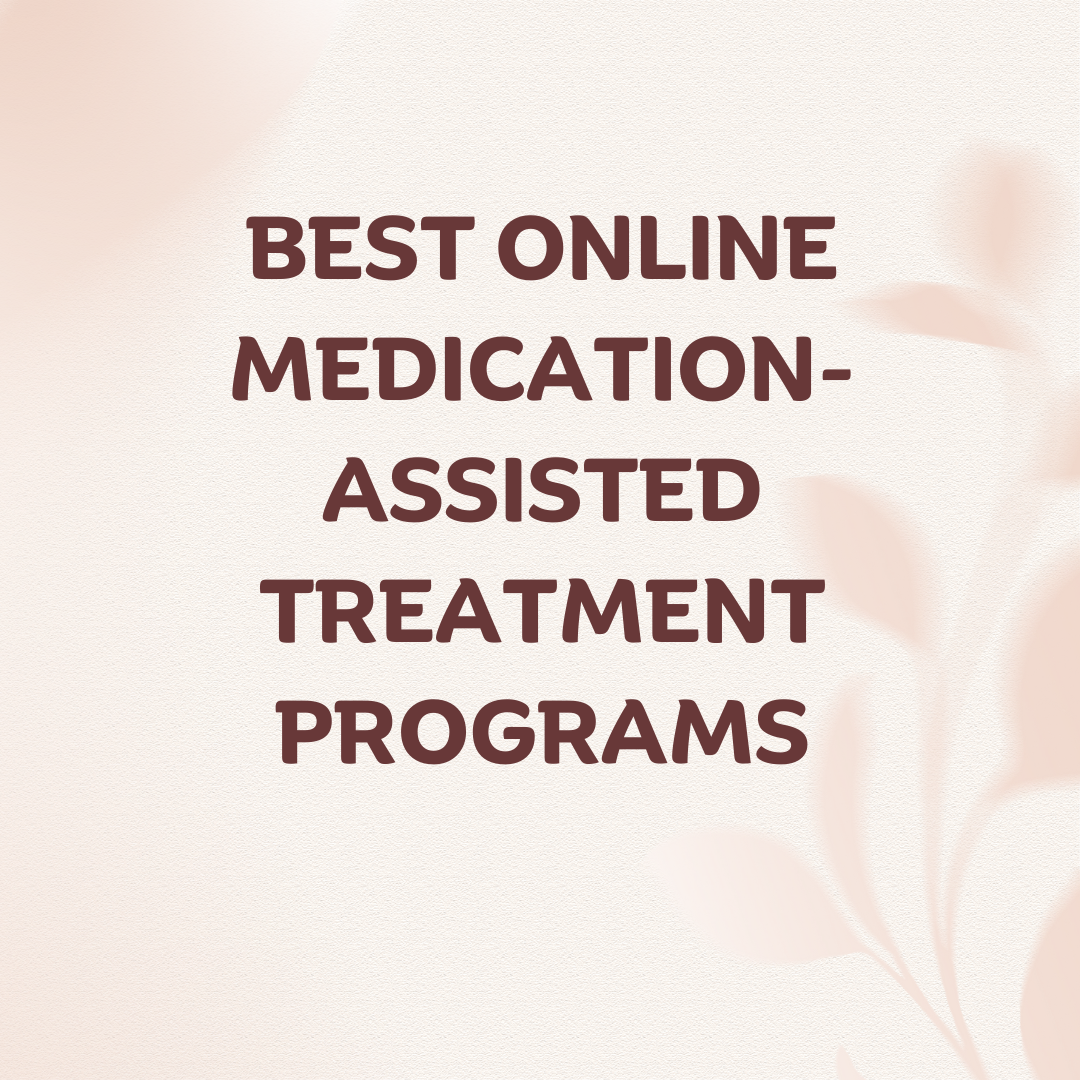
Best Mindful Drinking Apps If you’re thinking about joining the sober curious movement and you’d like to cut back on drinking, mindful drinking apps are a great place to start. Practicing mindful drinking can take some time, attention, and patience, but with the help of the right app, you can completely transform your relationship with alcohol.




